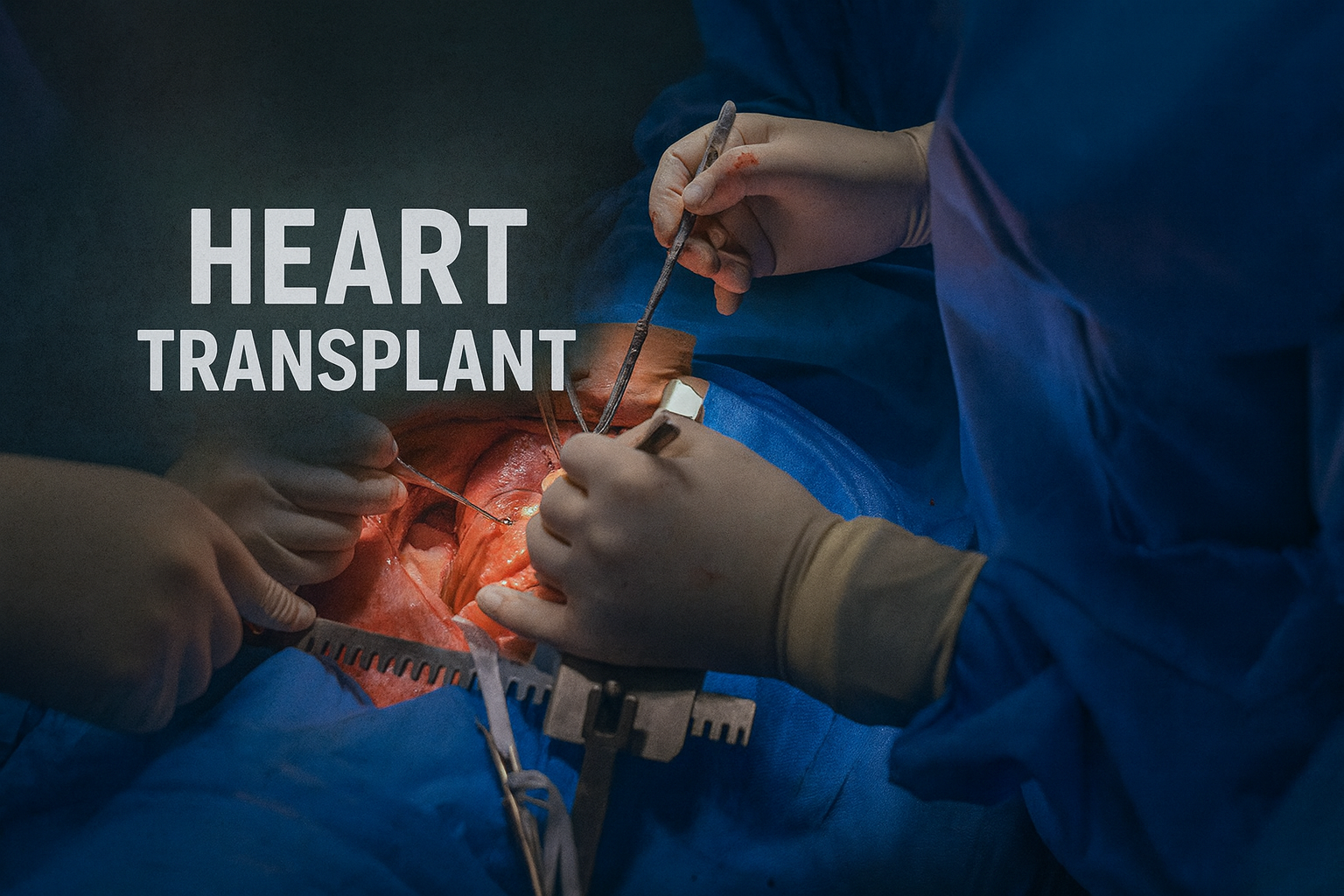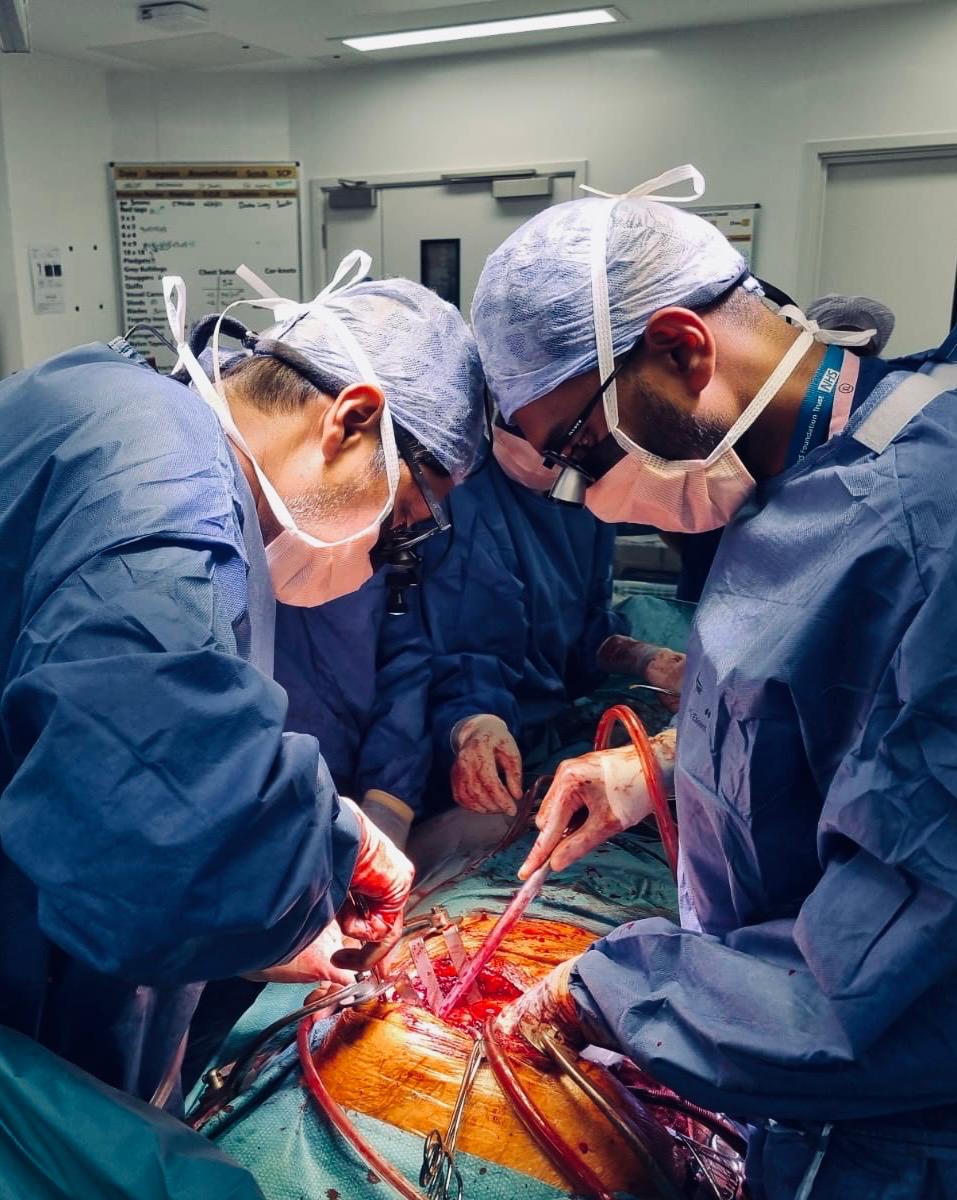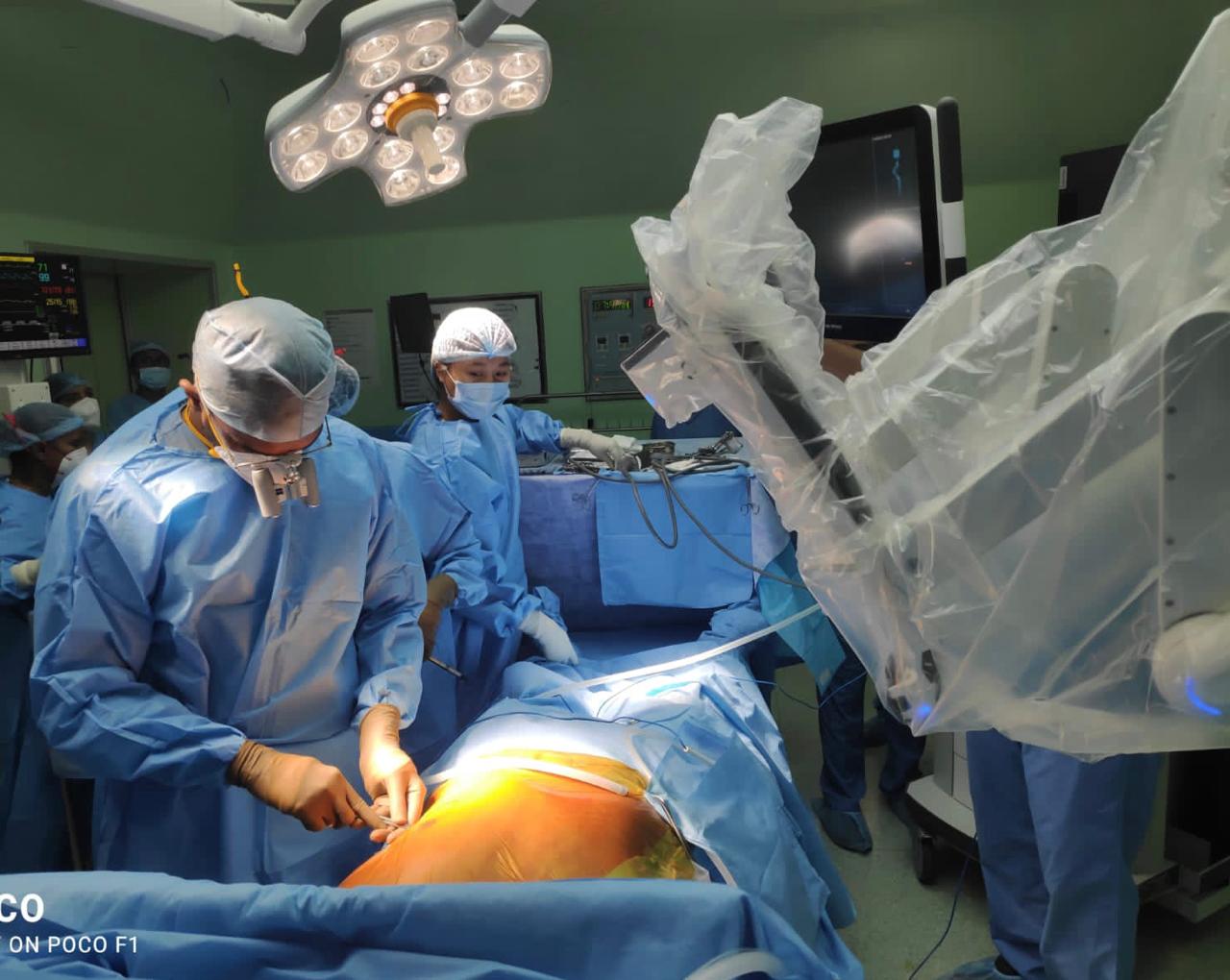When medication and less-invasive procedures can no longer keep a failing heart going, a heart transplant becomes the final, life-saving option. Over the last decade, Bangalore has quietly become India’s top destination for advanced cardiac surgeries and transplants—thanks to its world-class hospitals, expert multidisciplinary teams, and a patient-centric approach that blends science, compassion, and precision.
This article dives deep into everything you need to know about heart transplantation in Bangalore—how it works, who qualifies, the recovery path, cost insights, and why so many patients trust the best heart transplant surgeons in Bangalore for a second chance at life.
Understanding the Heart Transplant Procedure
A heart transplant is a surgical operation in which a diseased or failing heart is replaced with a healthy donor heart. It is typically recommended for patients with end-stage heart failure who have not responded to medication, devices, or previous surgeries.
Common Reasons for Heart Transplant
- Dilated cardiomyopathy
- Coronary artery disease (ischemic cardiomyopathy)
- Congenital heart defects
- Valvular heart disease
- Post-viral myocarditis
- Genetic cardiomyopathies
In a successful transplant, the new heart restores normal blood circulation, improves breathing and stamina, and dramatically enhances quality of life.
Why Bangalore Has Emerged as India’s Heart Transplant Hub
Bangalore stands at the intersection of clinical excellence, advanced infrastructure, and compassionate care. Hospitals here combine cutting-edge operating rooms, strong donor coordination systems, and 24×7 transplant ICUs—all essential for successful outcomes.
Here’s why patients across India and abroad are increasingly choosing Bangalore:
1. Integrated Transplant Programs
Top hospitals have specialized Heart Failure and Transplant Units, integrating cardiologists, surgeons, anesthetists, intensivists, and transplant coordinators into one seamless team.
2. Advanced Technology
From intraoperative echocardiography to ECMO (Extracorporeal Membrane Oxygenation) and mechanical circulatory support (MCS), Bangalore’s cardiac centers have the most advanced life-support technologies.
3. Multidisciplinary Expertise
The best programs are led by senior cardiothoracic surgeons, supported by cardiac anesthesiologists, perfusionists, infectious disease specialists, physiotherapists, and rehabilitation teams—all working in harmony.
4. Excellent Post-Operative Care
Successful transplantation doesn’t end in the operating room. Bangalore’s centers have structured post-transplant rehabilitation, immunosuppression management, and infection monitoring programs that ensure long-term survival.
5. Global Recognition
Several Bangalore hospitals maintain international accreditations (NABH, JCI) and are recognized for performing complex transplants with outcomes comparable to global standards.
The Journey: From Evaluation to New Heart
A heart transplant journey in Bangalore typically unfolds across several well-defined stages:
1. Comprehensive Evaluation
Once referred by a cardiologist, patients undergo detailed evaluations—echocardiogram, right heart catheterization, CT scans, blood tests, and psychosocial assessments. This ensures that the body and mind are ready for surgery.
2. Listing for Transplant
If the patient qualifies, they are placed on the transplant waiting list coordinated through authorized registries. Priority is based on medical urgency and compatibility.
3. Donor Matching
A donor heart must match the recipient’s blood type and body size. Once a suitable heart becomes available, timing becomes critical—the organ must be transplanted within 4–6 hours of retrieval.
4. The Surgery
The transplant surgery usually takes 4–6 hours. The diseased heart is removed, leaving a small section of the recipient’s own atria and great vessels to connect the donor heart. The new heart begins beating once blood flow is restored.
5. ICU and Recovery
Post-surgery, patients spend a few days in the cardiac transplant ICU under continuous monitoring. Once stable, they move to the ward and begin physiotherapy and breathing exercises.
6. Rehabilitation and Lifelong Care
Recovery continues for months. Immunosuppressive medications are prescribed to prevent rejection. Regular biopsies, blood tests, and echocardiograms help ensure the new heart functions perfectly.
Life After Heart Transplant: From Survival to Strength
Most patients experience an incredible improvement in energy, stamina, and quality of life within weeks of surgery. However, long-term success depends on commitment and follow-up.
Lifestyle Guidelines
- Medication Adherence: Immunosuppressants must be taken on schedule to prevent rejection.
- Balanced Nutrition: Focus on low-salt, high-protein, antioxidant-rich foods.
- Infection Prevention: Avoid crowded places initially; maintain strict hygiene.
- Exercise & Rehab: Gradual physical training improves strength and emotional well-being.
- Regular Check-ups: Follow-up is essential for early detection of rejection or side effects.
With proper care, patients can live 15–20 years or more after transplantation—many return to work, travel, and enjoy active family life.
Cost of Heart Transplant in Bangalore
The cost of a heart transplant in Bangalore can vary depending on hospital, patient condition, and duration of ICU stay.
Typical range (as of 2025):
Insurance and government schemes (such as Arogyasri, PMJAY, or private corporate covers) often reduce the financial burden. Many hospitals have financial counselling teams to guide families through documentation and coverage.
Choosing the Best Heart Transplant Surgeon in Bangalore
While you should never choose based only on fame, there are key indicators that help identify the best heart transplant surgeon in Bangalore:
- High surgical success rates and extensive transplant experience
- Leadership within accredited heart transplant programs
- Clear communication and empathy toward patients
- Collaboration with multidisciplinary transplant and ICU teams
- Focus on innovation (ECMO, minimally invasive assist devices, donor preservation)
- Strong post-surgical follow-up structure and patient testimonials
A great surgeon not only performs flawlessly but also leads a team culture of accountability, empathy, and healing. When you visit leading heart transplant centers in Bangalore, this ethos becomes instantly visible—from the first consult to the day you walk out with a new heartbeat.
The Future of Heart Transplantation in Bangalore
The city’s medical community is driving the next era of transplant innovation:
- Artificial hearts and LVADs as bridges to transplant or destination therapy
- Normothermic perfusion systems to extend donor organ life
- Precision immunosuppression based on genetic profiling
- Tele-monitoring and wearable sensors for continuous heart health tracking
- Public awareness programs encouraging more organ donors
With these advancements, Bangalore is not just saving lives—it’s setting the gold standard for ethical, advanced, and sustainable cardiac transplant care in India.
FAQs on Heart Transplant in Bangalore
1. Who qualifies for a heart transplant?
Patients with advanced heart failure who are not responding to medications, pacemakers, or surgeries are considered. A full evaluation confirms suitability.
2. How long is the waiting period for a donor heart?
It can range from a few weeks to several months, depending on blood type, body size, and donor availability.
3. How long is recovery after a heart transplant?
Hospital stay is around 3–4 weeks, followed by regular outpatient follow-ups for the first few months.
4. What are the survival rates?
At top Bangalore centers, 1-year survival exceeds 85–90%, and many patients lead active lives for decades after.
5. Can I get financial assistance?
Yes. Insurance, corporate tie-ups, and government health schemes often cover part or all transplant costs.
6. What’s the role of family in post-transplant care?
Family support is crucial for medication adherence, emotional recovery, and early recognition of warning signs.
About Dr. Asher George Joseph
Cardiothoracic & Transplant Surgeon – Bengaluru, Karnataka, India
Dr. Asher George Joseph, MBBS, M.Ch (CTVS, Gold Medalist), MRCS (Edinburgh), FACS (USA), and Fellowship in CT Transplantation & Mechanical Circulatory Support (Manchester, UK), is a distinguished cardiac and thoracic surgeon specializing in heart and lung transplantation, valve repairs & replacements, coronary artery bypass (CABG), aortic surgery, and minimally invasive cardiac procedures.
With over a decade of surgical experience and more than 1,000 complex cardiac operations, Dr. Asher brings international expertise, innovation, and compassion to every case—helping patients regain health, confidence, and quality of life.
📍 Clinic & Hospital Location
Sparsh Hospital
4/1 Tumkur Road, Yeshwanthpur Industrial Area, Phase 1,
Bengaluru, Karnataka 560022
📞 Contact Information
- Phone: +91 96861 22851
🕘 Working Hours
Monday – Saturday : 9 AM – 3 PM
Sunday : Closed
Emergency care available 24×7
💬 Book Your Consultation
Call +91 96861 22851 or visit the website to book an appointment with Dr. Asher George Joseph—the best heart transplant surgeon in Bangalore, delivering world-class cardiac and thoracic surgical care.


